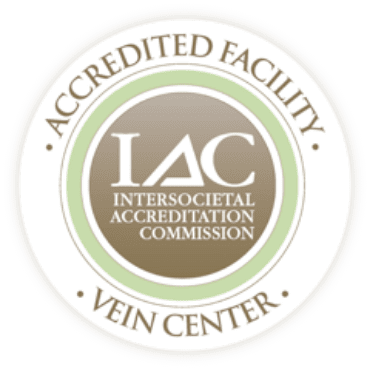Pregnancy is a time of incredible physical and hormonal change. For some women, it’s also when pre-existing varicose veins begin to worsen dramatically. We recently saw a 36-year-old woman in her first trimester whose longstanding vein issues flared significantly early in her pregnancy—a common but challenging scenario for vein specialists.
The Clinical Dilemma
The issue isn’t whether she has venous insufficiency—it’s when and how to treat it.
Endovenous ablation and microphlebectomy are safe, effective and minimally invasive treatments. But is it justifiable to perform these procedures during pregnancy, even under local anesthesia?
Conservative Management: Still the Standard of Care
Most cases of venous insufficiency that worsen during pregnancy tend to improve postpartum, once progesterone levels drop and pelvic pressure resolves. That’s why conservative treatment is usually the first recommendation.
Recommended conservative strategies include:
- Compression stockings worn daily
- Leg elevation during rest periods
- Sequential compression devices (SCDs) for additional support
- Wedge elevation at the foot of the bed to assist venous return
- Sleeping on the left side to reduce pressure on the vena cava
These approaches help manage symptoms effectively while avoiding unnecessary fetal exposure to procedural risks.
Call Or Request An Appointment
Contact us to schedule an appointment with our expert Vein Specialists team. We will evaluate your signs and symptoms, answer your questions, and create a personalized vein care treatment plan to relieve your leg pain and enhance your life.
Schedule Your Appointment TodayA Question of Perspective?
Some have questioned whether the conservative standard—largely shaped by a historically male-dominated field—fully appreciates the lived experience of pregnant women. Would a female provider be more likely to offer intervention during pregnancy? Possibly.
Still, when fetal safety is a factor, most vein specialists agree that avoiding even minimally invasive procedures is best unless absolutely necessary. Shared decision-making that respects both patient comfort and clinical caution is essential.
Postpartum: The Ideal Time for Treatment
The good news? After delivery, most patients experience notable improvement. That’s when endovenous ablation or microphlebectomy can be performed safely and electively, delivering lasting relief without risk to the baby.
Managing Pregnancy Varicose Veins Safely with Expert Care
Varicose veins during pregnancy are common—and often uncomfortable—but rarely dangerous. With expert guidance and conservative care, most patients can defer intervention until after childbirth, when outcomes are safer and more predictable.
Ready to Talk About Your Vein Health?
If you’re pregnant and dealing with worsening varicose veins, our experienced team is here to help you find relief—safely and compassionately.
Schedule your consultation today
Request an Appointment
Please take a moment and fill out your request below and one of our staff members will be in contact within 24-48 business hours. If this is an emergency, call 911 immediately. If this is a non-emergent concern, please call the office Monday-Friday between 8am – 5pm at: 239-694-8346





